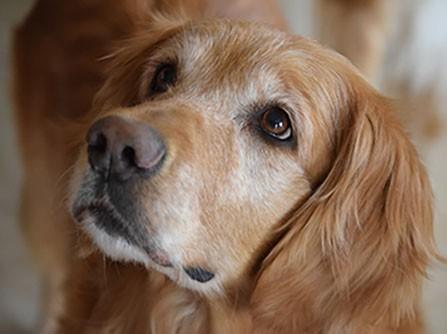
Hunting with a dog is a tradition as old as the hunt itself, and there’s something truly special about heading into the field with a seasoned companion by your side. Hunting with senior dogs is something that every experienced hunter will have to deal with. As your dog ages, its experience and intuition become invaluable assets. However, it’s important to recognize the unique needs and limitations of senior dogs to ensure they continue to enjoy hunting as much as they did in their younger years.
Pros of Hunting with Senior Dogs
Sure there are downsides when it comes to hunting with an older dog. However, there are also many advantages.
Senior Dogs Are Pros
Senior dogs have spent years learning the ins and outs of the hunt. They are already used to you giving them commands. They are your skilled partners. Their experience allows them to anticipate movements, track scents more effectively, and navigate the hunting grounds with an expertise that younger dogs have yet to develop. This level of proficiency can make your hunting experience smoother and more successful.
Older Dogs Don’t Mind Hunting
Older dogs have grown accustomed to the hunt, and their familiarity with the routine means they often exhibit less anxiety and more focus. They’ve honed their instincts over the years. They can work in a calm and confident manner even in extreme situations.
Understand That Senior Dogs Have a Limit
While senior dogs bring a wealth of experience to the hunt, it’s important to recognize that their physical abilities may have diminished over time.
They Might Not Be Able to Run as Fast/Jump as High
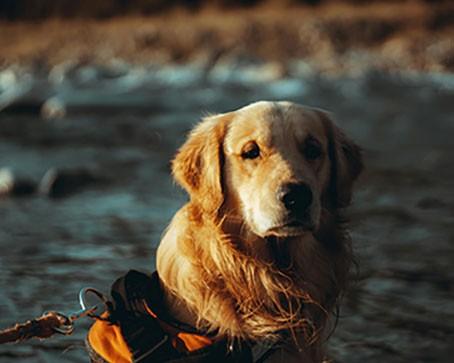
Age can take a toll on a dog’s physical capabilities. This means they may not have the same speed or agility they once did. Be mindful of their pace and avoid situations that could strain their joints or lead to injury.
Gun Dog Hunter Keith Crowley recalls an experience while hunting with a senior dog:
While hunting pheasants, my old black Lab, Elsie, once jumped a fence and landed smack dab in the middle of a coil of rusting barbed wire. She struggled to free herself from the tangle before I could get to her and many stitches were required to fix that little snafu. When she was young, she would have cleared the fence, the coiled wire and the old pick-up truck parked in the yard, too. But those days were gone, and I let her desire to hunt roosters get the best of us both.
It’s important to know the limits of your senior gun dog to prevent similar situations where a dog gets hurt.
They Might Have Trouble Going into Icy Waters
Senior dogs are more susceptible to the cold, and icy waters can pose a risk to their health. It’s important to be cautious when hunting in wet or cold environments. Provide appropriate protection and avoid extended exposure to the elements. Try not to command a senior dog to go into icy waters if you can.
They Have Less Stamina
Older dogs often tire more quickly, so it is important to monitor their energy levels and allow for breaks as needed. Plan shorter hunts or choose locations where they can rest comfortably.
Senior Dogs Need Physical Preparation
Proper physical preparation is necessary for maintaining your senior dog’s health and ensuring they’re ready for the hunt.
Keep Their Conditioning
Regular exercise helps maintain muscle tone and cardiovascular health, both of which are essential for hunting. Adjust their routine to match their current fitness level. Incorporate low-impact activities that promote overall well-being.
Daily Exercise is Essential
Consistent daily exercise is vital for keeping your senior dog in shape. This can include walks, gentle jogs, and other activities that engage their muscles without overexertion. We recommend 30 to 60-minute walks every day that you can split into two sessions.
Build Stamina
Gradually increasing the duration and intensity of exercise can help build or maintain stamina levels in senior dogs. This preparation is key to ensuring they can handle the physical demands of hunting.
Swimming is Good All-Around Exercise
Swimming is an excellent low-impact exercise for senior dogs, helping to strengthen their muscles without putting strain on their joints. If possible, incorporate swimming into their routine to improve their overall fitness level.
Hearing Loss in Dogs
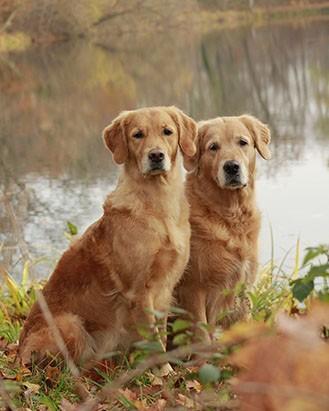
Hearing loss is a common issue in senior dogs and can significantly impact their ability to respond to commands in the field. As dogs age, the gradual decline in their auditory senses can lead to challenges in communication, which is crucial during hunting. However, it’s important to differentiate between true hearing loss and what is often referred to as “selective hearing.” Understanding this distinction can help you manage your dog’s hearing issues more effectively and ensure they remain responsive and engaged during hunts.
True Hearing Loss
True hearing loss in dogs is a natural part of the aging process. It can manifest as a gradual decline in their ability to hear certain frequencies, making it difficult for them to respond to commands they once easily followed. If you notice that your dog is not reacting to noises or commands as they used to, observe their behavior closely. Regular veterinary check-ups are essential for identifying the extent of hearing loss and for receiving professional advice on how to adapt your training and communication methods. In some cases, your vet may suggest specific auditory tests or treatments to help manage the condition.
Selective Hearing Loss
On the other hand, selective hearing loss is a behavioral issue where a dog may appear to ignore commands, not because they can’t hear them, but because they choose not to respond. This can be due to diminished interest, distractions, or a weakening of the training foundation over time. While selective hearing can be frustrating, it often indicates a need for retraining or reinforcement of existing commands. By being consistent with your signals and reinforcing commands with positive reinforcement, you can help your dog stay attentive and responsive, even if their hearing is not as sharp as it once was.
Considering Using Whistles for Commands
For dogs experiencing true hearing loss, using whistles can be a highly effective alternative to verbal commands. High-pitched whistles are often easier for senior dogs to hear, even if their hearing has diminished. Training your dog to respond to specific whistle signals can improve their reliability in the field and ensure clear communication. Whistles also have the advantage of being consistent and carrying over long distances, making them particularly useful during hunting. By incorporating whistles into your command repertoire, you can maintain strong communication with your senior dog, ensuring they continue to perform well during hunts.
Vision Impairment
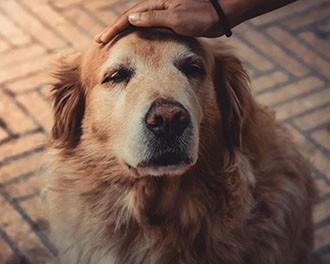
Vision impairment in senior dogs can be challenging to detect, yet it can have a significant impact on their hunting abilities. As dogs age, their eyesight can gradually deteriorate, affecting their ability to navigate the field, track game, and respond to visual cues. Since dogs are adept at compensating for sensory losses, the early signs of vision impairment are often subtle and easy to overlook. Recognizing these signs and seeking timely veterinary care can help maintain your dog’s quality of life and ensure they remain effective hunting companions.
Vision Impairment is Difficult to Spot in Dogs
Identifying vision impairment in dogs requires careful observation, as the symptoms can be quite subtle. Changes in behavior, such as increased hesitancy or reluctance to enter unfamiliar environments, may indicate that your dog’s vision is deteriorating. You might also notice them bumping into objects or becoming more cautious in low-light conditions. Regular eye check-ups are crucial for early detection and can help address any issues before they significantly impact your dog’s ability to hunt.
Cataracts are Common but Easily Treatable
Cataracts are one of the most common causes of vision impairment in senior dogs. They often develop slowly, clouding the lens of the eye and leading to partial or complete blindness if left untreated. Fortunately, cataracts are usually treatable with surgical intervention, which can restore your dog’s vision and enhance their quality of life. Consulting your veterinarian for an evaluation and discussing treatment options is important if you suspect cataracts are affecting your dog. With proper care, many dogs can continue to hunt successfully even after treatment.
Senior Dogs Can Be Overweight
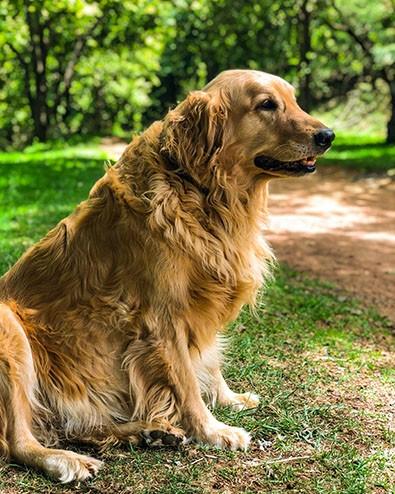
Maintaining a healthy weight is especially important for senior dogs, as it plays a critical role in preserving their mobility and overall health. As dogs age, their metabolism slows down, making them more prone to weight gain. Excess weight can exacerbate joint issues, lead to chronic health conditions, and decrease your dog’s overall quality of life. Ensuring that your senior dog stays at a healthy weight will not only enhance their comfort but can also extend their years as an active hunting companion.
Control Their Diet
As your hunting dog ages, its nutritional needs change, often requiring fewer calories but more targeted nutrients. Diet management is the easiest factor to control when it comes to weight gain in dogs. A balanced diet, tailored to their specific health needs, can help manage their weight while ensuring they receive the essential vitamins and minerals needed for good health.
A senior dog’s diet should focus on reduced caloric intake to prevent weight gain, with high-quality, easily digestible protein to maintain muscle mass and moderate fat, including omega-3 fatty acids for joint and coat health. Increased fiber supports digestion and weight management, while vitamins like C and E, and supplements such as glucosamine and chondroitin, promote immune and joint health. Specialized senior dog food formulas are often beneficial, and low sodium content is important for heart health. Consulting with a veterinarian or a pet nutritionist can provide valuable guidance in creating a diet plan that meets these needs, whether it involves portion control, specialized senior dog food, or dietary supplements.
Exercise
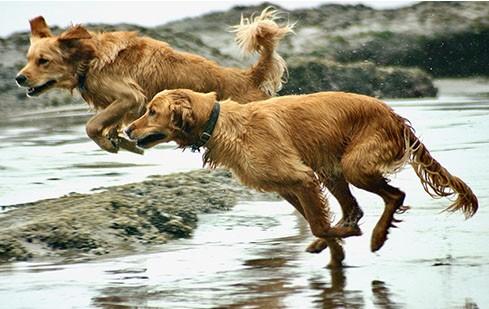
Regular exercise helps prevent obesity and maintain your senior dog’s health. Although they might not be as spry as they were in their prime, senior dogs still benefit greatly from consistent physical activity. Exercise helps burn calories, strengthens muscles, and supports joint health, all of which contribute to better weight management. Tailor your dog’s exercise routine to its current fitness level, focusing on low-impact activities like walking, swimming, or gentle play sessions that promote overall fitness without putting undue stress on their aging bodies.
A Lean Dog Can Squeeze in More Hunting Years
Keeping your senior dog lean can significantly extend its hunting years by reducing the strain on their joints and minimizing the risk of obesity-related health issues. A leaner dog is generally more agile, more energetic, and more able to enjoy the physical demands of hunting. By carefully managing their diet and ensuring regular, appropriate exercise, you can help your dog maintain a healthy weight. This allows them to remain a vital part of your hunting adventures for as long as possible.
Senior Dogs May Have Arthritis
Arthritis is a common condition in older dogs and this can lead to discomfort, reduced mobility, and a decline in overall quality of life. The wear and tear on your senior hunting dogs joints can result in inflammation, pain, and stiffness, making it difficult for them to move. Dog owners should recognize the signs of arthritis early on, such as limping, difficulty getting up, reluctance to climb stairs, or a decrease in activity levels. By addressing arthritis proactively, you can help manage your senior dog’s symptoms and improve their comfort.
Joint Supplements Can Help Slow the Development of Arthritis
One of the most effective ways to support joint health in senior dogs is by giving joint supplements. Veterinarians usually recommend glucosamine, chondroitin, and omega-3 fatty to help slow the progression of arthritis. These supplements work by providing essential nutrients that support cartilage health, reduce inflammation, and promote overall joint function. Glucosamine and chondroitin, in particular, are known for their ability to help rebuild and maintain cartilage, the cushioning material between joints. Omega-3 fatty acids, typically derived from fish oil, have strong anti-inflammatory properties that can alleviate pain and swelling in the joints. Discussing these options with your veterinarian is crucial to determine the appropriate dosage and combination for your dog’s specific needs.
NSAID Treatments
Non-steroidal anti-inflammatory drugs (NSAIDs) are another common treatment option for managing the pain and inflammation associated with arthritis in senior dogs. These medications work by blocking the enzymes responsible for inflammation, to provide relief from pain and reduce swelling in the joints. While NSAIDs can be highly effective, they must be used with caution, as they can have potential side effects, including gastrointestinal issues, liver or kidney problems, and increased risk of bleeding. It’s important to use NSAIDs under the close supervision of a veterinarian, who can recommend the most appropriate medication and dosage for your dog, as well as monitor their response to the treatment.
Localized Steroid Injections
In cases where arthritis symptoms are severe or not adequately managed by supplements and NSAIDs, localized steroid injections may be considered. Steroid injections, such as corticosteroids, can provide powerful anti-inflammatory effects directly at the site of the affected joints. These injections can offer significant pain relief and reduce inflammation for several weeks or even months, depending on the individual dog’s condition. However, they are typically reserved for more advanced cases of arthritis due to potential side effects, such as joint damage with prolonged use. Consult with your veterinarian to determine whether this treatment option is suitable for your dog, and to ensure that it is administered safely and effectively.
Don’t Be Afraid to Take an Old Dog Hunting
Hunting with a senior dog can be a rewarding experience. You can continue sharing the bond and teamwork you’ve built over the years. With their wealth of experience and instincts, senior dogs can still be valuable hunting companions. They can outshine younger dogs. However, to ensure that your older dog enjoys hunting well into their golden years, you should pay attention to their changing needs. By making a few adjustments to your hunting routine, you can help your senior dog stay comfortable, healthy, and enthusiastic about the hunt.
Hydration is Key
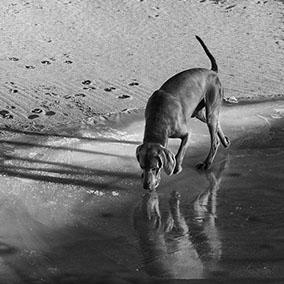
One of the most critical aspects of caring for a senior dog during hunting is ensuring they remain well-hydrated. As dogs age, their ability to regulate body temperature may decline, making them more susceptible to dehydration and overheating. This is important, especially in warm or hot weather. Dehydration can lead to heat stroke, which can be life-threatening if not addressed immediately.
To prevent heat strokes, make sure you provide your dog with frequent water breaks throughout the hunt. Carry portable water bowls or hydration packs. Pay attention to signs of dehydration, such as excessive panting, dry gums, or lethargy. Be prepared to cut the hunt short, if necessary, to protect your dog’s health.
Limit Your Senior Dog’s Time in the Field
While senior dogs may still have a strong desire to participate in the hunt, their stamina and energy levels are not what they used to be. Be mindful of your dog’s physical limitations and adjust the duration and intensity of their time in the field. Overexertion can lead to fatigue, joint strain, or even injury, particularly in older dogs who may already be dealing with arthritis or other age-related conditions.
If necessary, transition to shorter hunts and gradually increase the duration if your dog seems capable. However, always be on the lookout for signs of tiredness. If the senior dog is slowing down, showing reluctance to continue, or having difficulty keeping up, allow for frequent breaks to rest and recover.
Remember that the quality of the experience is more important than the quantity of time spent hunting, and ensuring your dog stays comfortable and safe will help them enjoy hunting for as long as possible.
When is it Time to Retire a Senior Dog?
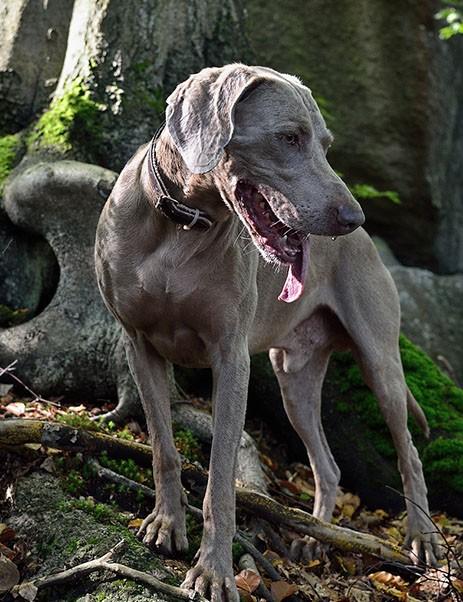
Deciding when to retire a senior hunting dog is a tough but necessary decision for their health and wellbeing. Some key indicators include increased fatigue, difficulty recovering from hunts, and chronic pain. If your dog starts to show signs of progressive health issues like arthritis or significant vision and hearing loss, it might be time to consider retiring them from hunting. Behavioral changes, such as loss of interest or anxiety in the field, can also signal that they no longer find hunting enjoyable or safe.
Consulting with your veterinarian can provide valuable insights into your dog’s health and help determine the best course of action. Gradually reducing their hunting activity allows them to transition smoothly into retirement, while engaging them in alternative activities like gentle walks or scent games can keep them mentally and physically stimulated. Prioritizing your dog’s comfort and happiness ensures they enjoy their retirement years, maintaining the bond you’ve built over a lifetime of shared adventures.
Embracing the Hunt with Your Seasoned Companion
Hunting with a senior dog can be a deeply rewarding experience. It offers an opportunity to appreciate the skills that have been developed over years of training and field experience. By understanding their limitations, providing appropriate care, and adapting your hunting practices to suit their needs, you can continue to enjoy the hunt together. Remember, the joy of hunting lies not only in the pursuit but in the shared bond between hunter and dog. As your faithful companion ages, cherish the moments spent together in the field, knowing that their presence enhances the hunt in ways only time can achieve.
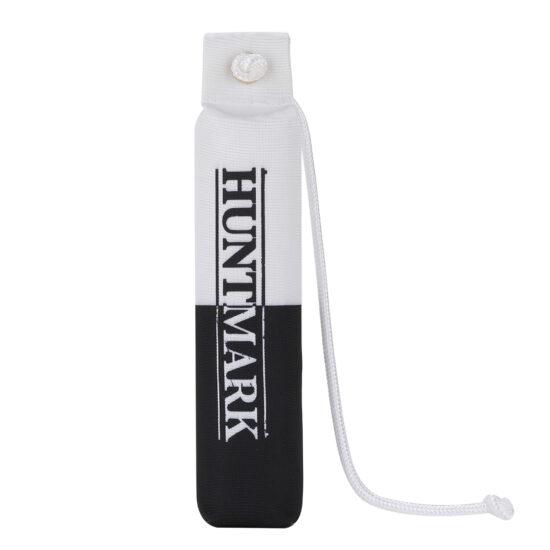
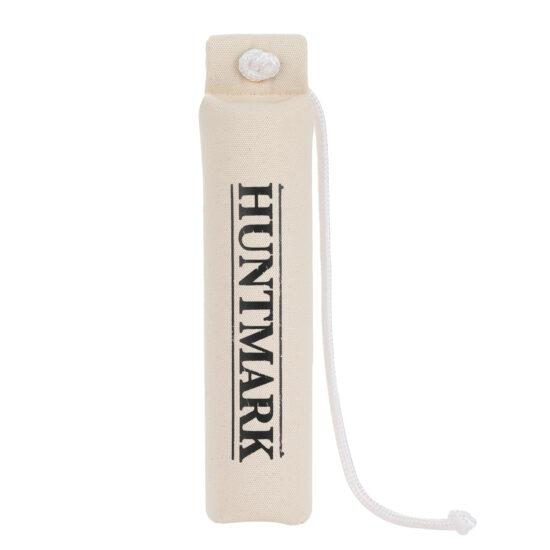
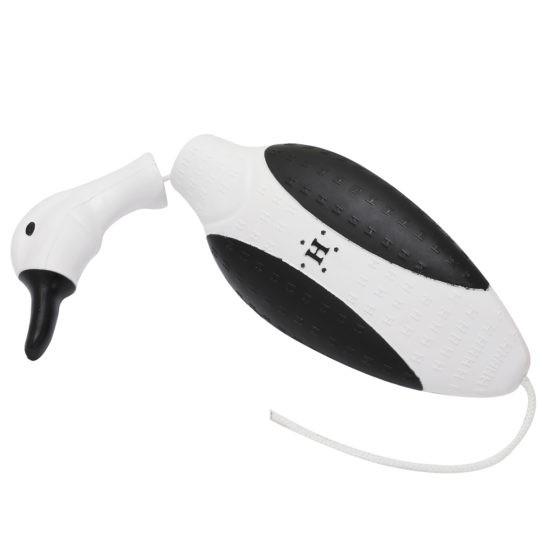
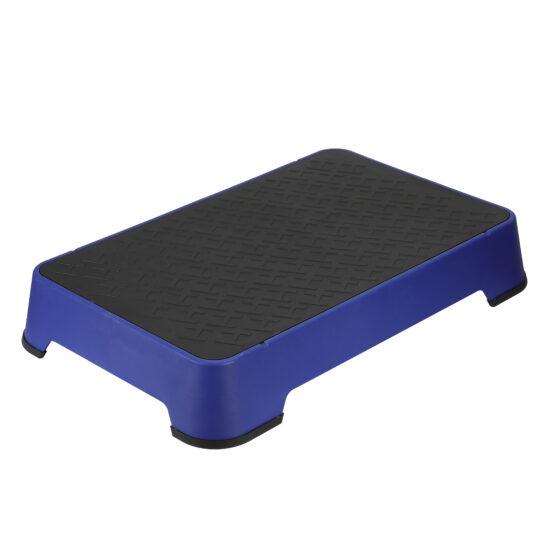



Leave a Reply